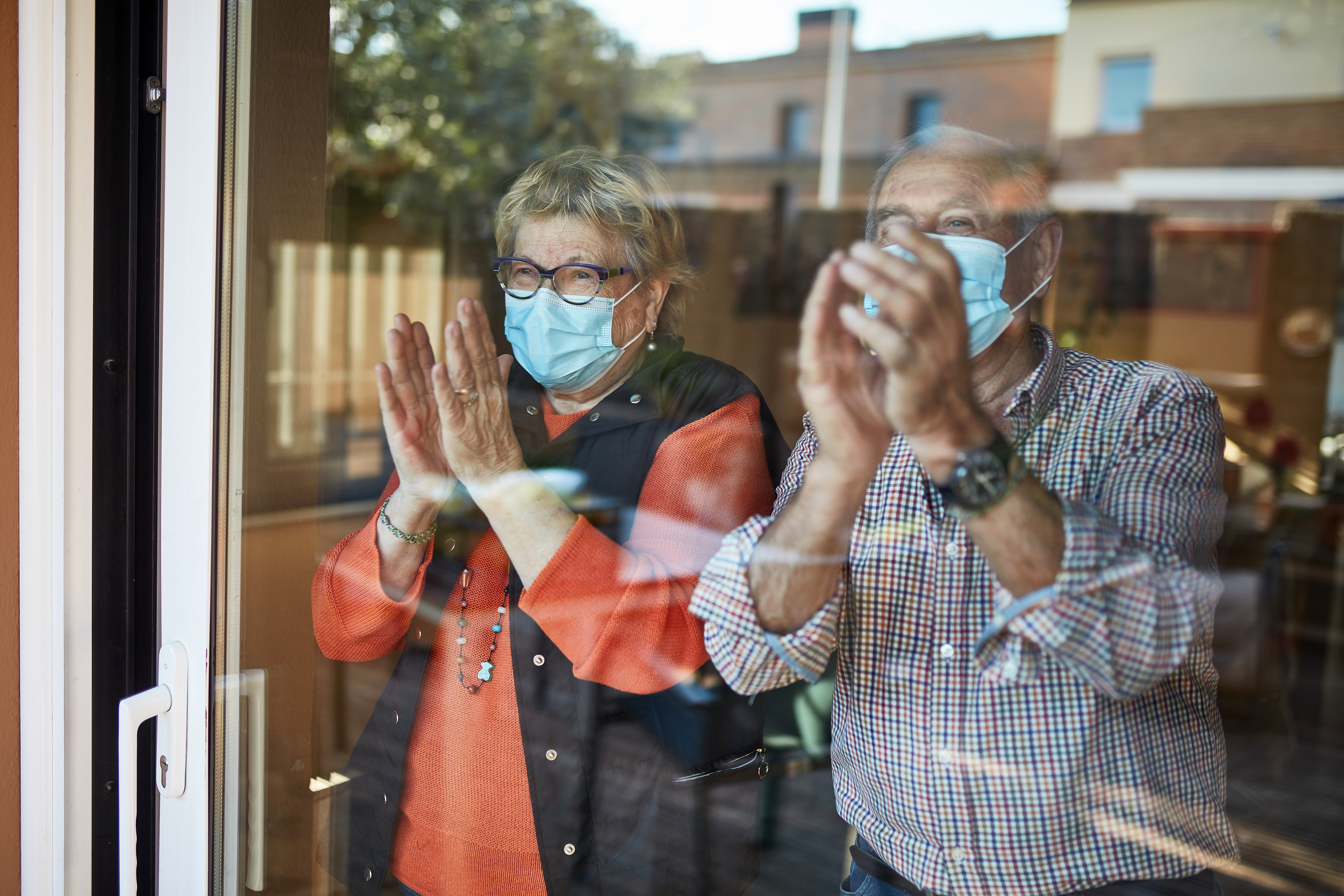Older adults are managing the stress of the coronavirus pandemic better than younger adults, reporting less depression and anxiety despite also experiencing greater general concern about COVID-19, according to a study recently published by researchers at the UConn School of Nursing.
Their somewhat paradoxical findings, published last month in the journal Aging and Mental Health, suggest that although greater psychological distress has been reported during the pandemic, older age may offer a buffer against negative feelings brought on by the virus’s impact.
“When you think about older adulthood, oftentimes, there are downsides. For example, with regard to physical well-being, we don’t recover as well from injury or illness as we get older,” says Natalie J. Shook, a social psychologist, associate professor, and principal investigator for the study. “But, on average, older adults tend to have better emotional well-being than younger adults. They tend to report a more positive mood, are happier and more satisfied with life. And so we wanted to look at this question, with regard to COVID, because we know older adults are much more likely to have serious complications.”
While Shook and her team found a significant positive association between the likelihood of contracting COVID-19 and feelings of anxiety in study respondents between the ages of 18 and 49, that relationship did not exist for older participants. The finding, the researchers wrote, aligns with other research showing better emotional management of stress in older age.
“What we see within our data is that there seems to be kind of this age buffering where, despite greater concerns about COVID and rightly so, our older adults are not reporting higher rates of anxiety or depression than younger adults,” Shook says. “The data suggest that older adults are better able to regulate their emotions and better able to cope with all of the stress and uncertainty right now.”
Older adults may be choosing to focus more on the positives of the current moment, the researchers write, but the risks of the virus don’t appear to be lost on them. Older age was related to greater concern about COVID-19 and greater perceived likelihood of dying if they contracted the disease.
Shook says the findings present an opportunity for policymakers and public health officials to learn from the ways older adults manage stress and deal with unusual circumstances to inform positive mental and behavioral health strategies for other age groups. Potentially, mindfulness practices or exercises that focus on the present moment, rather than focusing on the future or worrying about the past, may help support mental health.
Shook is also quick to say the findings don’t diminish the need to check in on older adults to ensure they’re managing well.
“Older adults still experience depression and anxiety, and it’s not that we’re not seeing that; we’re just seeing less than in our younger adults,” she says.
But the researchers also warned that perceiving a higher risk of COVID-19 infection generally predicts greater engagement in preventative health behaviors and that, if older adults perceive a low risk of infection, they may be less likely to follow behavioral guidelines meant to limit potential exposure.
“[I]t is important to emphasize to the public how highly contagious COVID-19 is, particularly highlighting that those of older ages are more vulnerable to contracting the disease,” they write.
The findings are part of a year-long examination of how behavior and social attitudes change, and what factors influence those changes, when people in the United States are faced with the threat of widespread disease. Supported by a National Science Foundation grant, the study is tracking the well-being, feelings, and behavioral practices of about 1,000 individuals across the United States.
This study is supported by NSF Award No. 2027027. UConn’s Institute for Collaboration on Health, Intervention, and Policy (InCHIP) is the managing institute for the grant. Please visit nsf.gov for more information, and visit chip.uconn.edu to learn more about InCHIP and its Rapid Response Proposals to Address COVID-19.



